“Corruption is far less prevalent among the technocrats of the Islamic Republic,… but even the little there is, is unacceptable,” Iranian Supreme Leader Ali Khamenei writes in a statement issued on the occasion of the fortieth anniversary of the revolution in Iran and establishment of the Islamic Republic. Addressing the youth of Iran, Khamenei’s statement goes as far as admitting: “There is a deep gap between what has been achieved and what should have been achieved” in the quest for achieving “justice”.
Fish however, rots from the head down, as the saying goes, and corruption admitted by Khamenei and documented in Omid for Iran initiative’s seminal “Where is My Oil” report, begins with Khamenei himself. But does the prospect of 79-year-old Khamenei being succeeded by a new leader improve the prospects of the Islamic Republic freeing itself from the scourge of corruption? Or is corruption endemic to the intransparent and undemocratic structural designs of regimes such as the Islamic Republic, and a new head of state will be another source of rot and decay?
To judge by the past and present record of the Islamic Revolutionary Guards Corps (IRGC), the institution most likely to dominate selection of the next leader and politics and economy of the Islamic Republic in the near future, corruption will most likely remain pervasive.
Facing domestic popular demands for political and economic reforms, which the regime is either incapable or unwilling to deliver, and under external pressure to moderate its regional ambitions, the regime has for decades increasingly relied on the support of the Revolutionary Guards. The Guards secured the survival of the regime, both in the face of mass protest rallies in the aftermath of the rigged 2009 presidential election, and in the course of the bread riots of December 2017 and January 2018. The Guards also helped the regime fill the power vacuum in the Middle East, in particular in Iraq and Syria, since 2003.
This Revolutionary Guards’ support, however, came with a price: gradual infiltration of formal political institutions by the IRGC officers, and transfer of ownership of state owned companies and businesses “privatized” under president Mahmoud Ahmadinejad, to the economic arms of the Revolutionary Guards. Economic arms as the Khatam al-Anbia Construction Base, Iran’s largest contracting company, whose intransparent nature provides a fertile ground for pervasive and widespread corruption.
The combination of political representation and economic muscles, place the Revolutionary Guards in a very strong position to have their candidate succeed Khamenei in office and continue their looting of Iran’s economy.
With this prospect in sight, Khamenei’s statement on the fortieth anniversary of the revolution rings hollow: “In the Islamic Republic, the hearts of the authorities should constantly beat for alleviating hardships and fear deep class divisions… discrimination in distribution of public goods and providing privileges to a few and tolerating economic charlatanism, both of which result in injustice, is strictly prohibited. Ignoring the needy layers of society is intolerable…”
Empty words from the head of the fish. A head, which sooner or later, will be succeeded by another head uttering equally empty words.
Ali Alfoneh is a senior fellow at the Arab Gulf States Institute in Washington (AGSIW)






